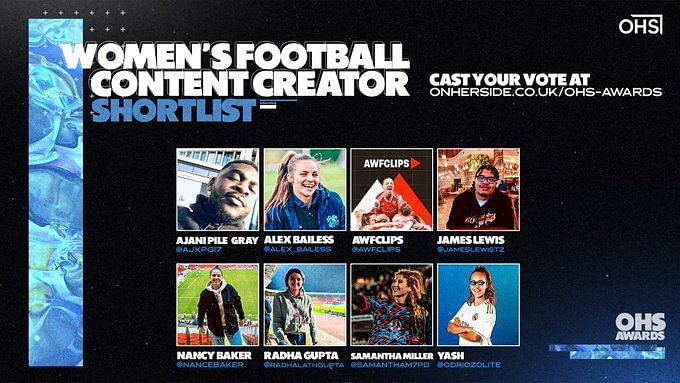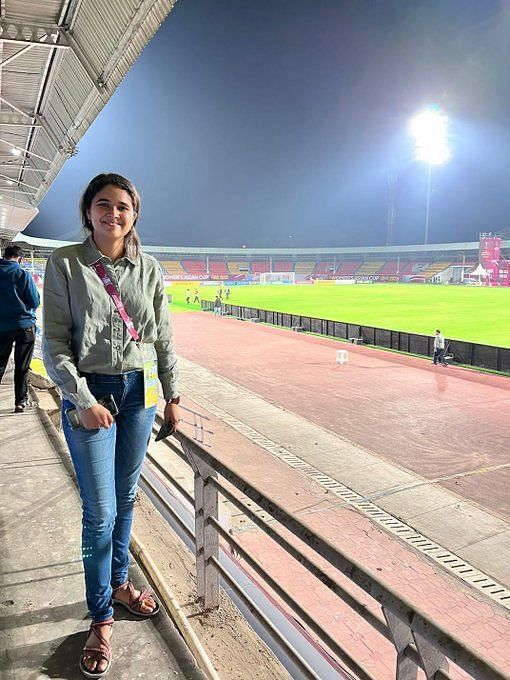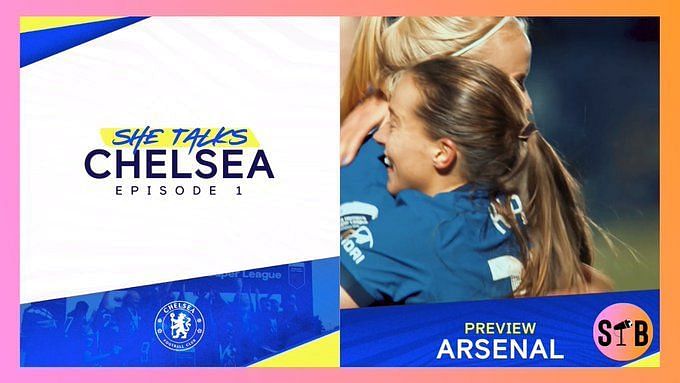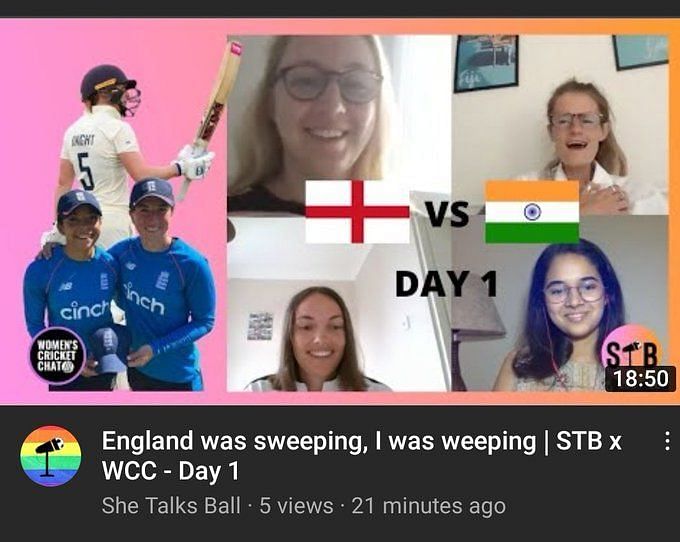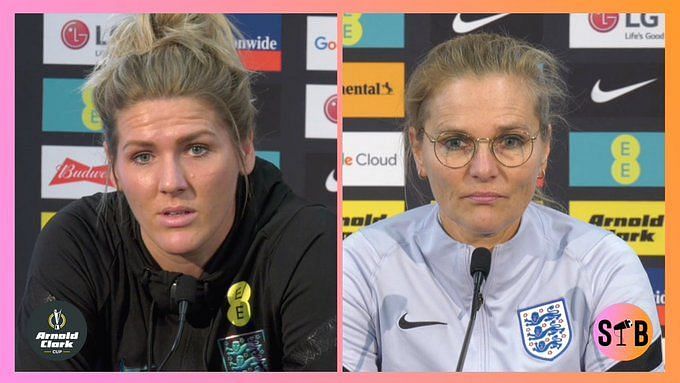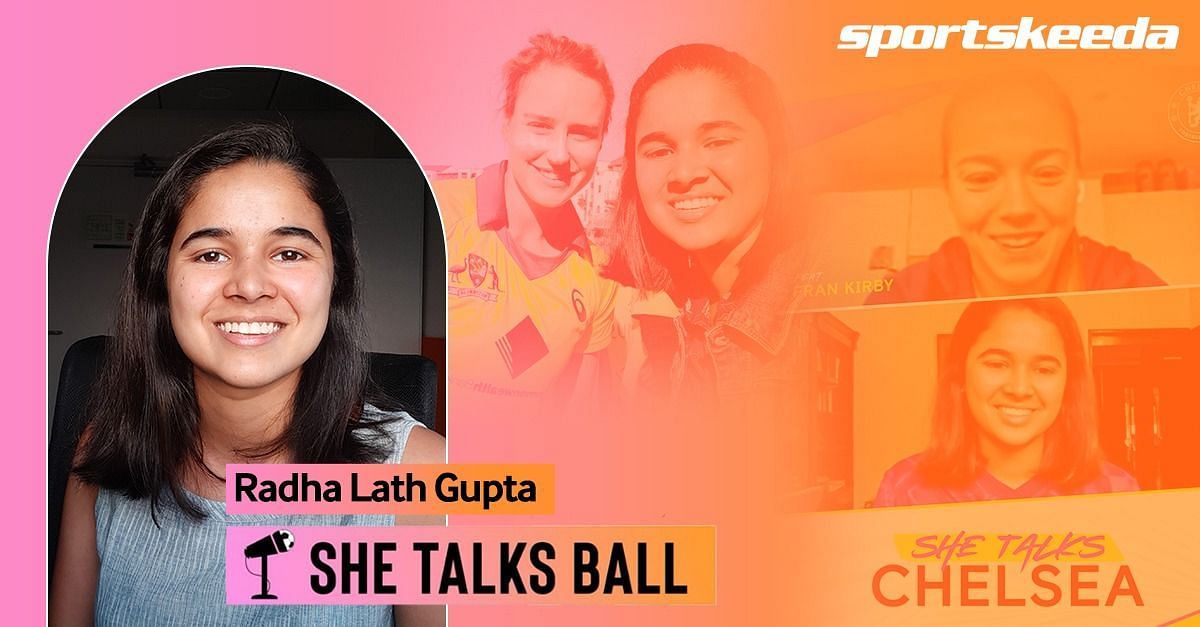
"I can sense that the women's sports industry is going to explode": She Talks Ball founder Radha Lath Gupta
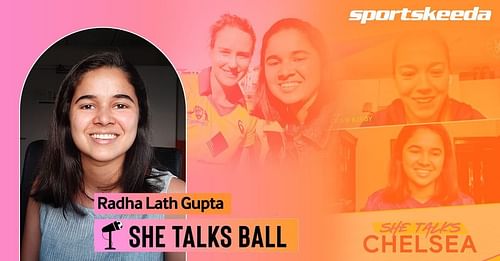
Several women are striving hard to make a name for themselves in a number of different sporting disciplines today. While they are doing their part on the pitch, they have not been offered the best support off it, especially in terms of media coverage. She Talks Ball, which is a media accredited platform today, has been active in changing this narrative and increasing the coverage and conversation around women in sports.
Sportskeeda recently caught up with She Talks Ball founder Radha Lath Gupta to understand more about her work in the women’s sports industry. In an engrossing video conversation, she explained the challenges in the lives of female athletes, her work in the AFC Women's Asian Cup and Arnold Clark Cup, and how acceptance of the masses will lead to proper representation of women in the sports industry.
1) So, as I mentioned before, several women are taking an interest in a wide variety of sports today, but what was your personal inspiration behind starting She Talks Ball?
Yeah, my personal inspiration was pretty simple. I was a woman interested in sports and didn't see any other women interested in sports, let alone playing sports. I was wondering why our newspapers are flooded with IPL and European men's football and X, Y, and Z.
There was a lack of representation of female athletes in the media; and being a young adult in sports, I really wanted to see that representation. I thought it was as simple as putting out a tweet about the next match, or putting out a small video, or a graphic - and I took it upon myself to do my part. I didn't realize that it would take off as well as it has, but that just proves that there is a massive market for it and I'm glad I stepped into that market.
2) You also received the Sports Innovation Lab’s Title XI Content Creator Grant during your early days. How big a role did it play in your journey?
Yeah, it was massive. You know, I was wondering why someone would give me a grant like this. But I spoke to them and learned that they have this really awesome concept of giving young women content creator grants.
It proved to be very helpful because one needs a launchpad of sorts to jump into this industry. And so that grant meant everything to me, because I was able to travel to Pune and Mumbai to cover the AFC Women's Asian Cup. I was able to buy some equipment and it just upped my game and made me a little more credible within the industry. And since I'm still in college and not yet earning, those funds really help me. Hence, that grant definitely put me in the right space within the industry.
3) Certainly. Increasing awareness is still an issue in women's sports, as is garnering an equal pay package. So how do you view this as a problem and how do you plan on tackling it through your platform?
See, on the one hand, I think the equal pay package is a result of more viewership of the sport and when people start talking about it, when sponsors start coming in, etc. However, any government federation should be paying their men’s and women’s team and their respective junior teams equally. I mean, they're not chasing profits. They're a government federation, but see, that isn't the case.
So, the only thing that we can do as the masses is to watch it, promote it, speak about it, and make sure that it's in our newspapers, because if it's in our papers, you know, the next day, there'll be 25 people watching it. And then there'll be 250 people watching it. So, through She Talks Ball, which is my own platform, I just aim to get the masses to watch it and get the numbers because the top dogs look at numbers while making decisions. Be it the salary package, the broadcasting, the TRPs – they wanna see numbers.
We have the power of the masses in India. So if we get the entire country to watch the Indian women's football team, they're going to be compelled to pay them equally because there's a lot of eyes watching to see if they pay them anything less. So, I think that's the aim as a media platform.
4) Hopefully that day is not too far. You covered the AFC Women's Asian Cup extensively, which took place last month. India failed to form a part of it after the issues surrounding the COVID-19 bubble. What is your viewpoint on this fiasco? What more can be done to progress women’s football in India?
Yeah. It's a big shame. It's just a massive shame because you get the entire country together. I tried my best to get everyone to watch the Indian women's team and this women's tournament. Many others were making documentaries, writing articles and seeing the hard work of the athletes, which ultimately went to waste.
It's astounding that the one country that didn't have to travel for this tournament is the one that had a COVID-19 bubble breach. And I was really hoping for better communication coming from the federation, which didn’t happen. I'm really hoping that since there were so many eyes on this and there was so much scrutiny on this fiasco, we'll never see it again.
We need to take the teams more seriously, because if it was the Indian men's team, people would be raging. I think it's very simple. The people who are taking the decisions are only scared of the masses. If the masses are there, they're going to be wary of what they're doing. We need to get the masses talking, watching, speaking about it, asking questions. And as soon as we do that, the federation and the people who are in charge of such massive tournaments are going to think twice before taking anything lightly.
5) Certainly. I couldn't agree more. You recently collaborated with the women's team of Premier League side Chelsea FC and talked about their lives off the pitch and their success on it. So how was that experience and are there any other clubs or athletes that you're looking to collaborate with in the future?
Yeah, I mean, that experience was awesome. Chelsea FC are a club that I support so I'm super pumped to be in touch with them and have a chance to collaborate with them. I mean, the players are more than their life on the pitch, right? They're not just athletes. One way to sell women's sports is to tell their stories, explain how they've grown up, what they're up to in their free time, and their motivations. We must try to depict them as relatable and approachable just as we depict them as superstars.
They go out for a picnic on an average day. They like to read a book or they like to do just very simple, basic things. The more you show that, the more they become human and the more you can become like them. If a young girl watches one of the interviews and hears Magdalena Eriksson, the Chelsea captain, say that her favorite hobby is reading and that the young girl likes reading too, she can relate. So, I was super, super honored to actually collaborate with Chelsea FC throughout the season for a bunch of episodes covering different athletes. They are all role models to me and will continue to be.
6) Must've been a great experience. So, you were also a presenter on the Women's CricZone, which covers all aspects of women's cricket. So, during this process, what did you learn about the kind of coverage offered to the sport and what measures can be taken to increase it to where it's on par — or even exceeds — the coverage offered to the men's game?
Yeah. So, I think in India, cricket is the top sport regardless of who is playing it and this country is united by cricket. Women's CricZone is a really special platform. I was glad that I could freelance with them because they are a one-stop destination in women's cricket. They put a lot of resources into covering not just Indian but global women's cricket as well.
So... "What more can be done?" We can just keep at it and get more people watching and talking about it. When people come in, sponsors will come in. When sponsors come in, money comes in, and when money comes in, it's going to grow and there will be more people. And that cycle just starts spinning. I think they've set a very good example for how successful a women's sports media outlet can be in India and worldwide as well. It's a massive market and they've completely exploited it.
7) You touched upon sponsorships. So, you were a digital sponsorship intern at the 2019 Cricket World Cup. Where do you see the women’s game in terms of brand associations and sponsorships? Are you seeing some kind of progress in the ongoing Women’s World Cup?
Yeah, well, I was a digital sponsorship intern for the Men's World Cup. And fortunately, or unfortunately, it's a different ball game. The Men's World Cup is quite different. The sponsors are fighting to get a foot in and get some ads during the overs. The women's game has certainly grown over the years and I believe it will continue to grow. When we chart it out side by side with the men's game, that is obviously a big disparity. You see the tickets being sold, you see the sponsorship money and cash price for the winners, right?
For example, the women’s warmup matches weren't even streamed. The official ICC scorecard kept changing. You really did not have too much information that you would definitely have for the Men's World Cup. It's small things like that.
Once you get a professional approach from the federation’s end, the masses will grab at it and grasp all of it and start consuming that content. But they need to put that out. And I guess for that, they need more sponsors coming in. But again, like I mentioned, it's a cycle and all we can do sitting at home is put out content and make sure that people engage with it.
8) You also covered the Arnold Clark cup recently, which England went on to win, but only four teams participated this time. Do you see more teams participating in the coming years, especially after the kind of response that was generated this year?
Yeah. I mean, it would be awesome to see that. I think they started off small. They started off with just a week-long tournament between four teams and it was quite a success. There was a lot of viewership and I was lucky to get onto the media side of things, ask a few questions and get their media press conferences up on the She Talks Ball YouTube channel too.
It'll be really cool to see a few more teams participate. I don't know if they can fit it into the small FIFA window that they plan to. The teams that were there this time were super competitive and sometimes, what happens is that if the tournament isn't very engaging and doesn't have a good turnout, other countries don't want to come. So as long as they can keep that buzz about it and sell tickets, that's really how you can continue to grow the game.
9) And how was your experience covering the tournament?
Yeah, it was; it was fantastic. I covered it virtually from home, but I was part of all the pre-match and post-match press conferences. Obviously, they were working as per UK Time, so I was up at 7:30 PM and then at 12:30 AM post the match. So, it was absolutely incredible. These are some athletes and managers that I've looked up to since I knew that they existed.
The fact that I could ask a question and the fact that I was the only one in the press conference without an English accent was very interesting because I unmuted myself and asked a question and the player's face would just change. They're like, "Okay, this is a voice that we haven't heard before." So, it was really nice to represent a different part of the world in the press conference.
10) Well, as an Indian, that is really nice to hear. She Talks Ball is growing at like a rapid pace, thanks to your hard work and dedication over the last year and a half. But what is the future roadmap for it and what other ventures can your viewers look forward to?
Yeah, that's a very interesting question. I think in an interview in November, I mentioned that I might cover the Asian Cup. I sort of put it out into the universe and that actually took place. The roadmap as of now is still very open. I don't think I've decided on a very strict or rigid future because I can sense that the women's sports industry is going to explode. I definitely want to be there when it explodes.
And opportunities in the last two to three years have come my way and I've been able to guide the journey of She Talks Ball around that. So, my plan is just to keep at it and keep working hard. I believe that if you keep working hard, opportunities will come your way and I can say that because I've experienced that. I will grab them as they come and work towards my goals. It's a fantastic problem to have. I'm super pumped to see what the future holds.
11) That’s terrific. Lastly, do you have a message for young budding female entrepreneurs who want to start content creation in the women's sports industry, or about female athletes in general?
Yeah. One thing that has helped me is talking to people who have already done it. I sort of spent a lot of time connecting with journalists on LinkedIn and Twitter. Twitter was a massive help for me. It's crazy how one social media app could really explode a person's life. I would definitely advise connecting with people who are within the industry, because one thing I've noticed within the women's sports industry is everyone holding each other’s hands and trying to lift each other up.
There's no concept of tearing your competition down because your competition is ultimately achieving a goal that you also want to achieve. And if they achieve that, the entire space is better for us. So, I think it is important to network and to talk to people. People are very approachable.
They're very, very interested and enthusiastic about helping out new faces within the industry and I think there's really no excuse or replacement for hard work. All I can say is that there is a market for it and that is very evident from the people who are already in this market and are thriving. The more players that come into this market, the more credible the market becomes.
So the more interest it generates, the bigger the players and sponsors that will be interested in being a part of this market. I think for anyone who's listening to this, it's the absolute right time to get into the market. Don't plan too much and then get in. Just get in and find your feet because you don't want to be on the sidelines when things get really good.
